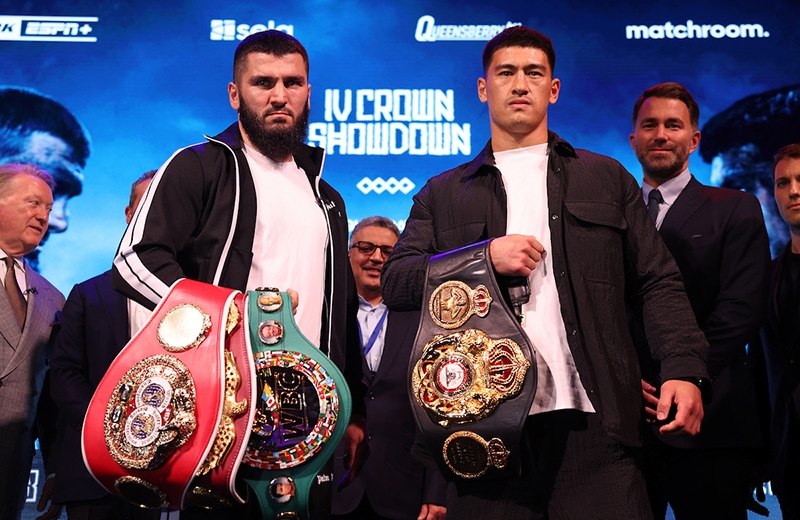Ezzard Charles. Archie Moore. Bob Foster. Michael Spinks. Sam Langford. These are some of the names that are brought up as the best fighters in the history of the light heavyweight division. It’s one of boxing’s eight original weight classes. This lineage goes back to the early 1900s when Jack Root was crowned the division’s first world champion in 1903.
This summer, two fighters have the opportunity to put their name into the annals of light heavyweight greatness. Current unified WBC, WBO, and IBF light heavyweight champion Artur Beterbiev will meet WBO light heavyweight titleholder Dmitry Bivol in a unification match to crown the division’s undisputed champion. The fight will take place on June 1 in the burgeoning capital of boxing, Saudi Arabia.
Not only will this be a battle for light heavyweight supremacy, but it will also be between two of the best fighters in the world, pound-for-pound. Depending on what happens in the rest of 2024, the winner will have earned a spot in the top three on any credible list. The fight itself is a true 50-50 match that will be pontificated and examined for months before it takes place, with both pugilists aware of what is at stake and the task ahead of them.
Dmitry Bivol: “The Hardest Test”
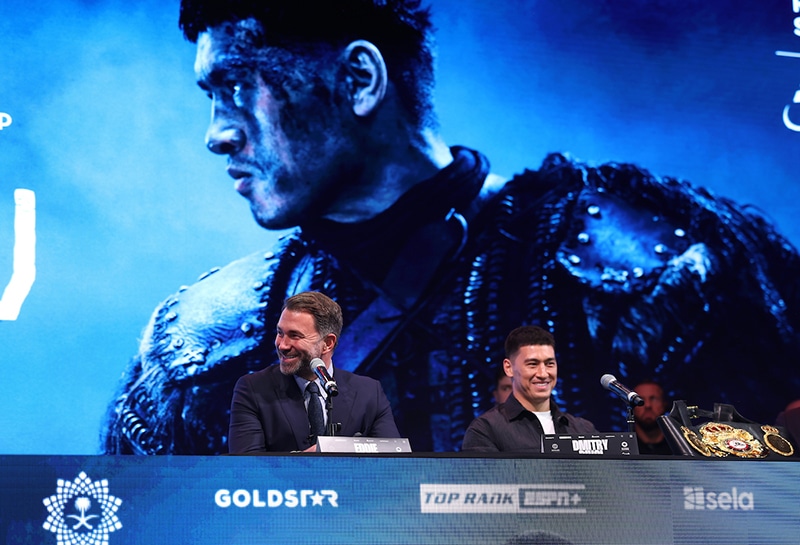
Photo: Mark Robinson,
“To be honest, I believe that it is the hardest test,” Bivol said on Matchroom Boxing’s Flash Knockdown Podcast in January. “Why? Because he is stronger. I know that he is physically stronger than Canelo. He has good technique, too. Many people talk about his power but forget about his technique because his power is so much better than his technique, but he still had good technique.”
While debating about what will happen when Bivol and Beterbiev meet inside the ring is engrossing, considering both competitor’s technical acumen, the fact that the fight was put together so easily at just the right time is even more intriguing. Both light heavyweights have different promoters and fight on different networks, yet there was no issue in putting the fight together. It was easy. It’s almost suspiciously easy, especially when compared to some light-heavyweight clashes of the recent past.
In every era of boxing, certain fights don’t happen. Despite Floyd Mayweather Jr.’s stellar junior lightweight resume, he never faced Joel Casamayor or Acelino Freitas. Long-reigning welterweight champions Felix Trinidad and Ike Quartey never traded blows. Erik Morales never went to war with Juan Manuel Marquez in what would have been a guaranteed classic.
Perhaps the most significant fight that didn’t take place in recent history was a fight between Sergey Kovalev and Adonis Stevenson.
Kovalev vs Stevenson: Who’s To Blame?
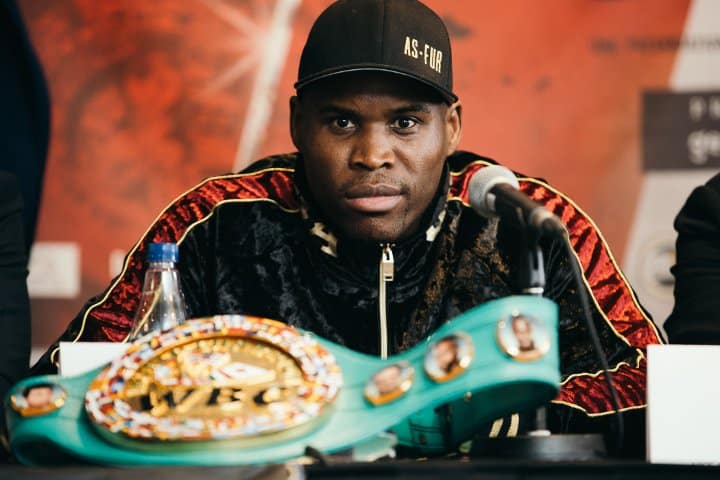
Somewhat similar to the current heavyweight landscape with Tyson Fury and Oleksandr Usyk, Stevenson held the WBC light heavyweight title and was anointed the division’s lineal crown when he stopped Chad Dawson in one round. On the other hand, Kovalev grabbed the remaining titles at light heavyweight, becoming the unified WBA, IBF, and WBO champion.
The thought of seeing Kovalev and Stevenson trading blows was salivating for boxing fans, guaranteed to quench any thirst for a full-on war or a knockout.
Through 2014 and 2016, the anticipation and demand for the fight were at their apex. Although it wouldn’t have been the box office bonanza of Mayweather-Pacquiao, for hardcore boxing fans the urge to see the two light heavyweight power punchers in the same ring eclipsed the two all-time greats as the fight wasn’t at its sell-by date.
The Boxing Cold War Era
However, due to numerous factors, the fight never took place. While at the time, there was a narrative that Stevenson was hesitant to make the fight happen, multiple parties, including the fighters themselves, deserve the blame.
HBO and Showtime’s production value and commentary have long been ingrained with the sweet science, with generations of fans growing up under the premium network’s broadcasting style of boxing. However, this era of boxing is often romanticized, given a glossy candy-painted makeover that covers up the cracks that helped prevent numerous fights from taking place.
The business behind the scenes caused many promoters and their fighters to show unabashed loyalty to their associated network. In other words, to use a line from “Game of Thrones,” what killed some fights was loyalty.
Of the two, Kovalev appeared to have the verisimilitude to make the fight with Stevenson happen. Fans and many media believed he wanted to make the fight happen.
In 2014, at the height of a boxing cold war between HBO and Showtime, there was some agreement between Kovalev’s promoter, Main Events, and Stevenson’s team under adviser Al Haymon.
Instead of producing what could have been another massive joint PPV, like Mike Tyson-Lennox Lewis, Stevenson walked away from negotiations under Haymon’s advisement.
“Demanding Showtime involvement is the kind of term you put in a deal when you don’t want to make it,” said Main Events CEO Kathy Duva to the Los Angeles Times in 2016. “We went through three months of negotiations [with Stevenson’s Canadian promoter, Yvon Michel], and it turns out they were in bad faith.
“Yvon and I can agree on everything, and then it goes to Al and Adonis. And either Al is putting his interests ahead of Adonis’ or Adonis doesn’t want the fight. I have to come to the conclusion Adonis doesn’t want the fight. If he did, he’d stand up to his manager and tell him to make the fight. We had a site [MGM Grand in Las Vegas], a date, everything in place, a 50/50 split. They walked away from that deal. They know it’s not coming back.”
The following year, in March 2015, following Kovalev’s eighth-round stoppage over Jean Pascal in Stevenson’s adopted hometown of Montreal, Quebec, Canada, the WBC ordered a purse bid between the two light heavyweight champions. Stevenson was ordered to face the winner of Kovalev-Pascal, seemingly taking network affiliations out of the equation in halting the fight.
Loyalty and Lost Opportunity
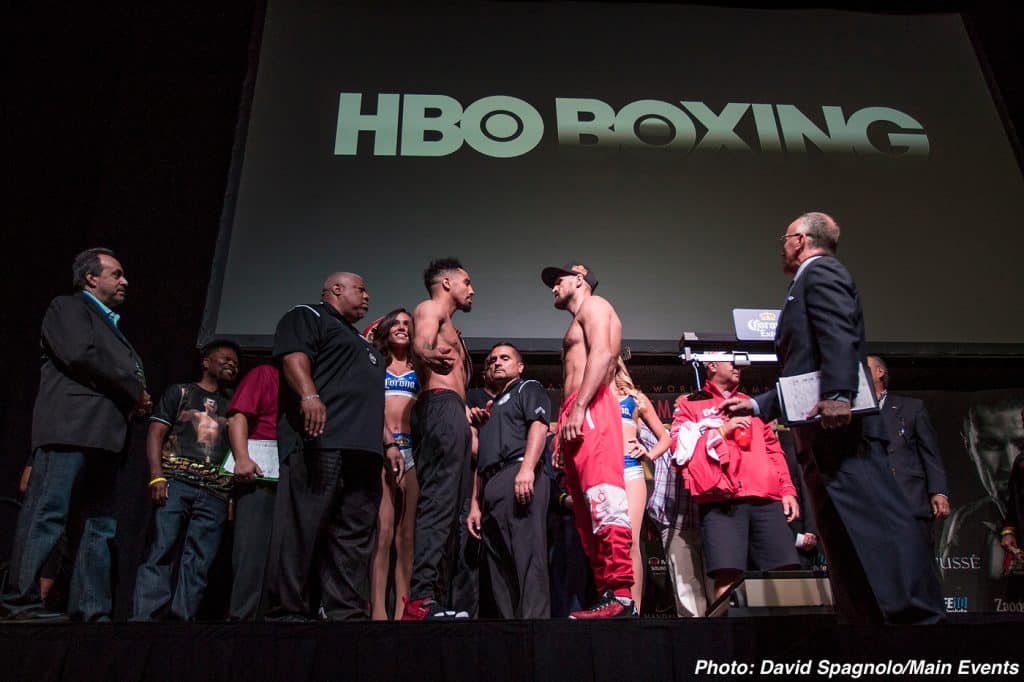
But the alliance to a network once again killed the fight.
Main Events and Kovalev backed out of the purse bid. For years, the perception was that Stevenson was at fault for delaying the fight. He backed out of a deal in 2014 and essentially turned the WBC title into a shield, making non-descript title defenses for years.
After a star-making 2013, in which Stevenson scored four stoppages against Darnell Boone in a rematch and a first-round knockout over then-light heavyweight kingpin Chad Dawson, Tavoris Cloud, and Tony Bellew, the Haitian-turned-Canadian-based southpaw knockout artist decimated his reputation with fans and media by acting like a docile pawn under Haymon’s regime instead of controlling his career. Stevenson’s stature made him a faux emperor who thought he wore a crown.
In an unprecedented move, Ring Magazine voted to strip him of the Ring’s light heavyweight title in 2015, putting a tangible end to his claim as the light heavyweight king.
However, the fault did not fall on Stevenson and his team this time. It was on Main Events and Kovalev, whose loyalty to HBO and maybe fear of the network’s repercussions led them to forego the purse bid.
“We want to make the fight very much, and we’d love to make the fight with them on a 50-50 deal,” Duva said to ESPN in 2015. “But Sergey is contractually tied to HBO, and we can’t go to a purse bid. We can’t fight the fight if we lose the bid, so there’s no point in going to the bid and putting on a charade.
“Sergey has a contract with HBO, and he will be fighting on HBO. If Adonis doesn’t want to do that, God bless him. “Sergey is the best light heavyweight in the world. If Adonis wants to prove he’s the best, he’s going to have to fight Sergey, and he’s going to have to do it on terms that are doable under Sergey’s HBO contract.”
For Stevenson, Kovalev and his team’s decision not to participate in the purse bid was a sign of weakness. It was a level of vindication that Kovalev, not him, that prevented the fight from happening.
“Because he’s scared!” Stevenson lamented in an interview with Ring Magazine in 2015. “The reason they withdrew from the purse bid was because they knew whoever would win the purse bid would fight on their terms, and that’s what the purse bid is for, and they didn’t want to take the chance. So Kovalev’s promoter withdrew from the purse bid, and it’s sad for the sport of boxing. They criticize me, but I just want everything to be fair.
“It’s whoever pays the most money should get the fight. We never shut the door to HBO and have nothing against HBO. We will fight on any network that gives us the best deal. Again, that’s the reason for the purse bid.”
Kovalev vs Stevenson: What Could Have Been
Imagine if the fight went to a purse bid and Haymon won. At the time, Haymon’s Premier Boxing Champions was putting on fights like the welterweight showdown between Keith Thurman and Shawn Porter on CBS. Whether it was on CBS or NBC or a joint PPV between Showtime and HBO, the most crucial factor was getting both fighters inside the squared circle.
Kovalev-Stevenson had all the ingredients to make for a magnificent event that could reach outside of boxing. They had two public confrontations in Canada, once after James Degale defeated Lucian Bute and after Kovalev’s rematch with Pascal in January 2016. The personal animosity and natural competitive nature of being champions in the same weight class made the intensity between them palpable. It’s too bad it never happened.
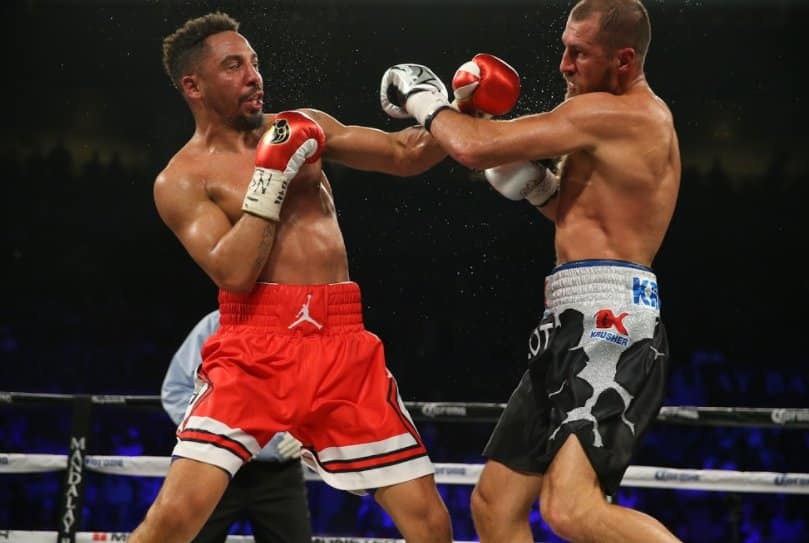
When Kovalev signed to fight Andre Ward in the fall of 2016, it essentially killed the fight with Stevenson forever. Kovalev would have two controversial fights with Ward, where he received the short end of a razor-thin decision that most had him winning. And in the rematch the following year, in June 2017, he was stopped for the first time by a series of low blows that passed for legal body shots (that’s a whole other controversy).
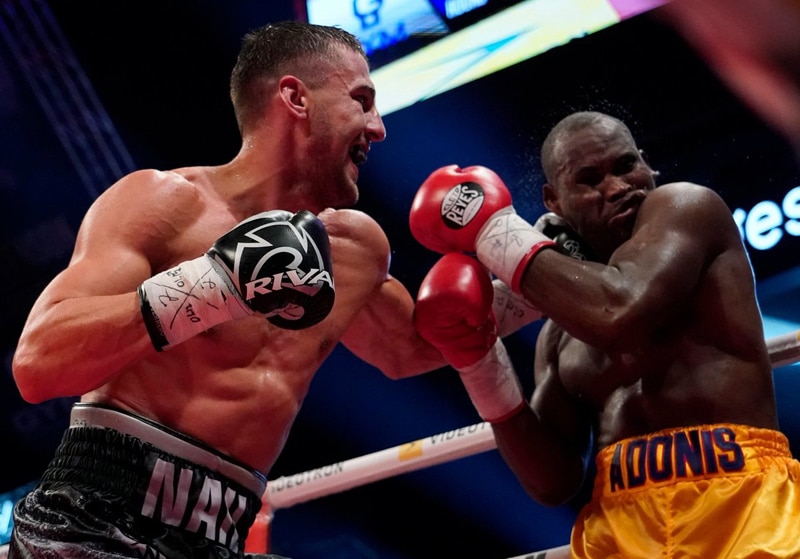
Stevenson continued to defend his WBC light heavyweight title until his reign and career came to a frightening end in December 2018 when Oleksandr Gvozdyk stopped him. Stevenson was in critical condition and placed in a medically induced coma to reduce the swelling and bleeding in his brain. He would have a portion of his skull removed during brain surgery due to the injuries he sustained in his fight with Gvozdyk.
In retrospect, HBO’s interference in making Kovalev-Stevenson a reality isn’t surprising. In the 1990s, it allowed Roy Jones Jr. to serve up fans with title defenses against lesser opponents instead of unifying with Dariusz Michalczewski to crown an undisputed champion at light heavyweight.
In the 2000s, it never made deals with promoters to join the WWE and UFC in providing physical media of fights or documentaries like “Legendary Nights” available for purchase. Physical media has largely gone the way of digital in today’s age. However, for mixed martial arts fans, many saw their first UFC fights by renting at the local Blockbuster or purchasing a DVD at Wal-Mart or Best Buy.
In other words, growing boxing’s popularity outside their self-interests was never a priority, even if it could benefit them. But hey, for some random channels on streaming apps like Tubi, it’s good enough.
Beterbiev vs Bivol Silver Lining
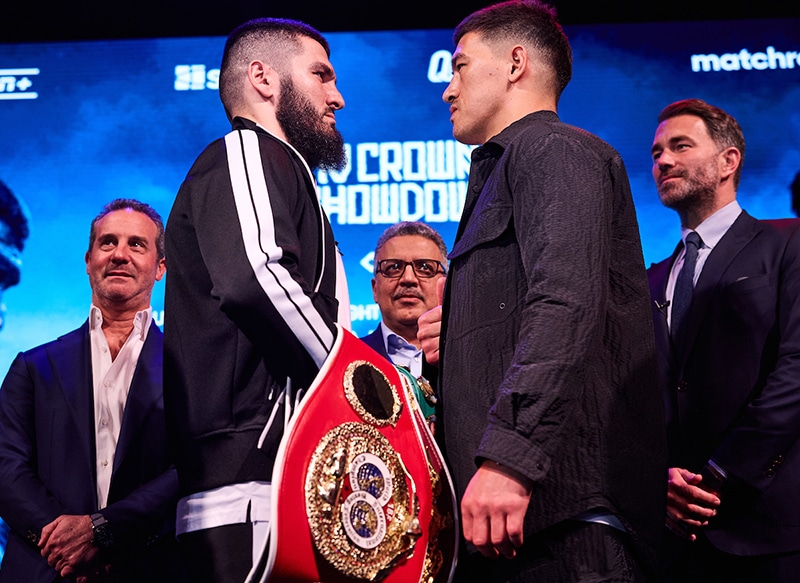
The ease with which Beterbiev-Bivol was put together was a gift for boxing fans. There was no back-and-forth, money disputes, or network rivalries; there were just two champions in the same division who wanted to see who was the best. With David Benavidez officially moving up to the weight class, there’s an already set opponent for the winner if the fight doesn’t need a rematch.
No era is perfect, and today’s boxing landscape certainly has its share of issues. The amount of self-sabotage that fighters do to themselves is head-scratching at times. Fighters fight less than ever and rarely capitalize on their momentum, and the sport’s biggest star is arguably a social media YouTuber.
But Beterbiev-Bivol is that silver lining. It puts to rest at least one of the ghosts that haunt the history of the light heavyweight division.
